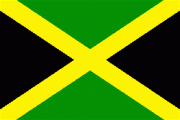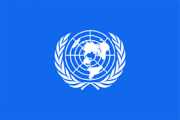Mr. President,
I have the honour to speak on behalf of the fourteen Member States of the Caribbean Community (CARICOM) that are members of the United Nations. Our Group welcomes this opportunity to present some initial thoughts on the Report of the Secretary-General’s High Level Panel on Global Sustainability. At the outset let me thank the Secretary-General for conveying the Report to member states. CARICOM wishes to express its gratitude to the Panel for their hard-work, especially the Hon. Freundel Stuart, Prime Minister of Barbados, who closely consulted his colleagues in the region during preparation of the report.
Mr. President,
CARICOM accepts the core argument presented in the report that the current development model is unsustainable and that today it is more urgent than ever to fully embrace the sustainable development agenda. In presenting its case on the urgency of integrating the social, economic and environmental dimensions of sustainable development, the Panel provides a fresh perspective on the seemingly intractable question of “political will’ and presents some ideas on how to overcome this challenge through the use of new and existing tools and mechanisms.
While we are still studying the final report, we nevertheless wish to offer some initial views on some of the recommendations contained in it. CARICOM supports the call by the Panel for the international community to prioritize the scaling up of efforts to meet the MDGs by 2015. However, we are disappointed that the Panel did not offer specific recommendations on how to ensure the achievement of this objective. CARICOM is reflecting positively on the Panel’s recommendations related to establishing a Global Fund for Education and a new goal of providing universal access to quality post-primary and secondary education. We believe that both initiatives merit serious consideration.
CARICOM also supports the Report’s focus on agriculture and oceans. We will consider the proposals under these themes including the recommendation related to establishing a new green revolution. We welcome the report’s recognition of the Caribbean Sea Commission as a regional best practice in ensuring sustainable use of the marine environment. It is our hope that recommendations under this theme will be carried forward expeditiously, especially those related to building the capacity of marine managers, policymakers and scientists in developing countries, especially small island developing countries.
Mr. President,
CARICOM takes note of the Panel’s recommendations in Chapter 3 of the report but wishes to emphasize that although there are several detailed recommendations in this chapter directed primarily at governments these recommendations do not, in our view, take sufficient account of the specific national circumstances of States and overlooks the special situation of small island developing states such as those in the CARICOM sub-region where market based solutions for promoting sustainable development may unduly restrict the policy space of the Governments of these countries and ultimately cause more harm than good. We are reflecting on the recommendation related to a Sustainable Development Index or set of indicators. We believe that if the UN Secretary-General carries forward this work through the appointment of a technical task force, it is essential that CARICOM is represented.
CARICOM believes that Chapter 4 on strengthening institutional governance was not sufficiently ambitious in making detailed recommendations on governance reforms for the international economic, financial and trading systems. If the institutions at the heart of these systems are not reformed to ensure greater voice and participation of developing countries in norm-setting and decision-making, the best efforts of developing countries to achieve sustainable development will be frustrated.
However, we see value in some of the recommendations in this section including those related to the launching of a major global scientific initiative to strengthen the interface of policy and science including preparation of regular assessments and digests of the science around concepts such as “planetary boundaries”, “tipping points” and “environmental thresholds” in the context of sustainable development. We also believe that the Panel’s framing of sustainable development goals provides us with some useful options which might be helpful in the context of the Rio +20 process.
In terms of follow-up on the recommendations in the report we note that the report sets out that the Secretary-General will be primarily responsible for implementation either on his own accord or through the establishment of expert Panels. CARICOM is of the view that Member States should be consulted on these issues and that in constituting any expert Panels or groups the SG should strive to ensure equitable geographical balance, as well as that a diversity of interests and perspectives are represented. Small island developing states must be accorded full voice and participation in any future arrangements.
Let me again thank the Panel for this report. Given the diversity of interests and perspectives represented on the Panel, we believe that the report can contribute to advancing inter-governmental processes including, but not limited to, the upcoming Rio+20 Conference.


